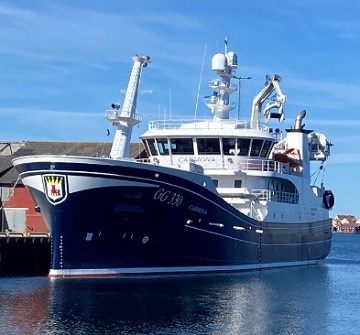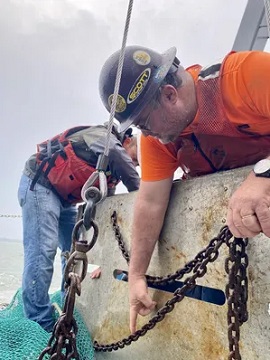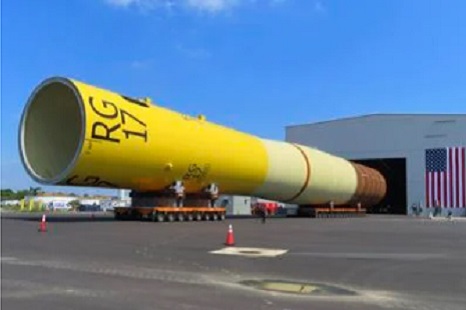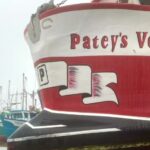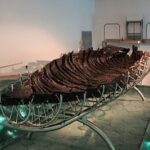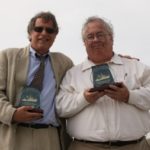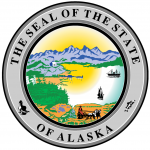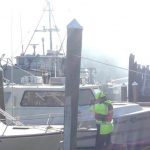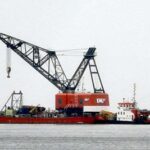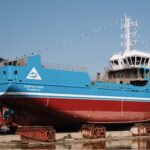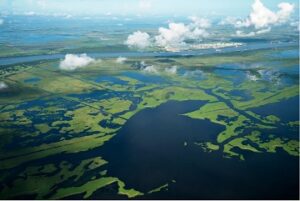With a wind power project proposed off the beach taking a big step forward this week, Mayor Jay Gillian on Thursday criticized the approval process and called offshore energy production “a crazy gamble.” City officials have expressed skepticism about the Ocean Wind 1 project since its proposal, but at the City Council meeting, Gillian went farther than usual, offering a blunt assessment of the project, describing the approval process as rushed and suggesting most of the benefits would flow to a foreign company. Gov. Phil Murphy and company representatives celebrated the approval Wednesday. But the reaction was far different in Ocean City. “Despite the thousands of pages of paper masquerading as a complete review of the project’s impact, we still have absolutely no idea what this will cost the state’s taxpayers and ratepayers, and what benefits we might see in return,” >click to read< 10:58
Author Archives: borehead - Moderator
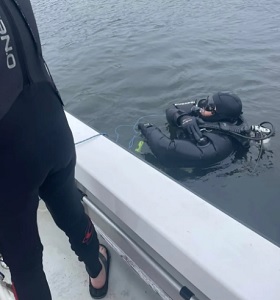
Long-sunken trawler leaks diesel fuel into Mackerel Cove
A trawler that sank to the bottom of Mackerel Cove, Bailey Island, in the 1990s leaked diesel fuel into the cove on Monday, July 10. A local diver plugged the leak late Monday afternoon and the U.S. Coast Guard plans to pump out the rest of the fuel, according to Harpswell Harbor Master Paul Plummer. The Maine Department of Environmental Protection, the Orr’s and Bailey Islands Fire Department, and U.S. Coast Guard Station South Portland responded to assist. But it was local diver Alex Lund who stopped the leak around 5 p.m., using marine putty and other materials. The fishing vessel Miss Plum was the source of the leak, according to Plummer. >click to read< 07:50
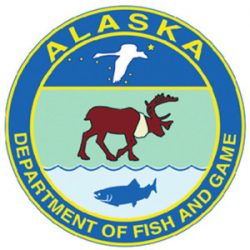
Alaska Fish and Game announces closure of Chinook salmon commercial troll fishery at 11:59 p.m., Wednesday, July 12, 2023
The commercial troll fishery will close to the retention of Chinook salmon at 11:59 p.m., Wednesday, July 12, 2023. The current target harvest for the first Chinook salmon retention period of 77,100 Chinook salmon is expected to be reached by this time. All Chinook salmon must be offloaded prior to operating troll gear for other salmon species, according to the Fish and Game announcement. All processors and trollers are required to submit fish tickets to the department within seven days of landing. A freezer catcher–processor (FAS) that retains coho salmon onboard after the Chinook salmon fishery closure must,,, >click to read< 20:53
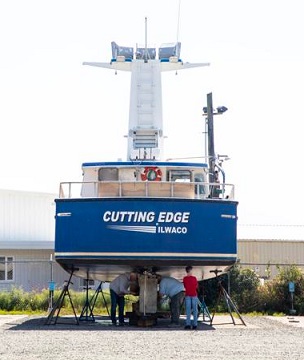
Boat work: Do it right or risk ‘big ol’ can of worms’
Under a high July sun, shipwright Rachel Kuhn sanded the mahogany hull of a 1967 Chris-Craft next to Westport commercial fisherman Chris Cain, who was busy re-painting the bottom of his 46-foot Gulf Craft ahead of the albacore tuna season, now only days away. Nearby, Brian Cutting worked to replace the propeller on his 50-foot vessel, the F/V Cutting Edge, a necessary step before the commercial fisherman can return to sea to catch halibut. It was a typical early-summer day in one of Washington’s busiest boatyards, one of the few remaining year-round haul-out facilities on the Washington coast that cater to hundreds of commercial and recreational boaters each year. 13 photos, >click to read< 17:55
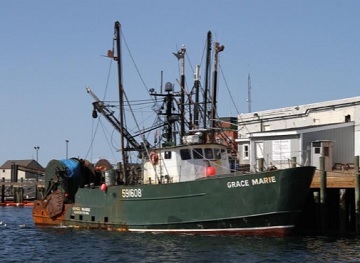
Failure of Doubler-Plated Hull Likely Cause of Sinking of Fishing Vessel
The failure of the doubler-plated hull under the engine room likely caused the flooding and sinking of a fishing vessel near Gloucester, Massachusetts last year, the National Transportation Safety Board said Tuesday. The fishing vessel Grace Marie was transiting to fishing grounds on July 8, 2022, when the engine room began flooding. The seven-person crew was unable to remove the water with the vessel’s bilge pumping system. The crew abandoned the vessel in a life raft and was rescued by a Good Samaritan vessel. The vessel eventually sank and was a total loss valued at $650,000. No injuries were reported. >click to read< 16:00
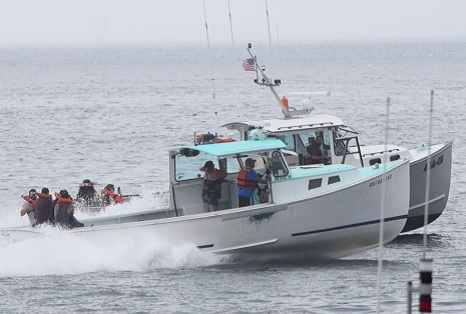
Stonington Lobster Boat Races results
Racing on the Stonington Harbor course on July 9. The big winner was Jeremy Beal’s Maria’s Nightmare II out of Jonesport, which crossed the finish line first in two of the biggest race classes. >click to read the results< 13:01
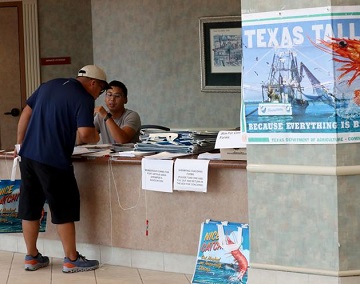
Texas shrimpers call for tariffs on cheaper Asian imports
Just days before the start of Gulf shrimp season, harvesters from all along the Texas coast are calling for government action to help them weather a storm of high fuel prices and cheaper foreign imports. More than 100 people who make a living on Gulf shrimp gathered Monday afternoon at the Doyle Convention Center to draw attention to forces they say threaten to sink their industry. Boat owners, dock owners, boat captains and deckhands huddled under a banner with six small U.S. flags to sign in and record their fears in hopes the notes would eventually reach the eyes of the U.S. Congress. Photos. >click to read< 11:41
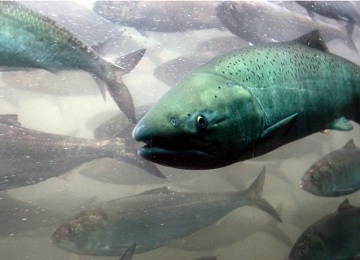
What Happened to California’s Salmon Season This Year?
This spring, fisheries’ managers closed the commercial and recreational salmon season off the coast of California, owing to cratering fish populations, for the first time since 2009. Every one of the few fish left from the generation of Chinook salmon currently swimming in the ocean are needed to return to their natal streams and spawn, managers decided. On the Capitol steps, Bates, Jackson-Reed and other tribal leaders and environmental activists charged that officials, and the Newsom administration in particular, are failing the people and species that benefit from the Sacramento River system by appeasing wealthy farms and other big water users. >click to read< 10:31
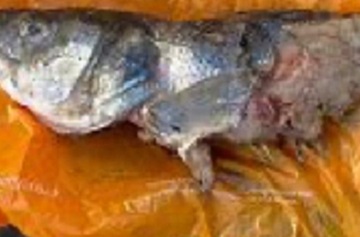
Claims that seals are endangering the livelihoods of local fishermen
The seals are not native to this area but have bred and formed a substantial colony beneath the cliffs at Fairlight, where they are often sighted. Fishermen believe the seals have established themselves after being released back into the sea by the RSPCA centre at Mallydams at Fairlight, which has a seal treatment area including a pool. Paul Stanley and his partner Lucy Phillips fish from the small boat ‘Christine’ RX11. There’s a huge colony of forty to fifty under the cliffs at Fairlight. They are not a native species to this area, and they are doing massive damage to the fish stock, and to fishermen’s livelihood. If something like this happened on land, such as a dog let loose attacking sheep, it would be shot.” Photos. >click to read< 09:24
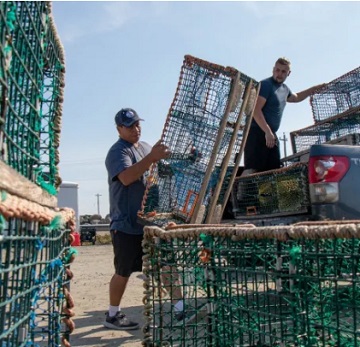
DFO says it has enough resources to monitor Indigenous lobster fishing in Nova Scotia
Fisheries and Oceans Canada (DFO) says its enforcement branch will be on the water and adequately equipped to monitor compliance of First Nations lobster fisheries this summer. The pledge follows the chaotic fishery for baby eels this spring where there was widespread illegal activity by some Indigenous and non-Indigenous harvesters. DFO shut down the legal elver fishery, affecting both commercial licence holders and Indigenous groups with fishing plans approved by the department. But “poaching”, as federal Fisheries Minister Joyce Murray called it, continued. “I want to clarify they are two very different fisheries,” Maritimes region director of conservation and protection Tim Kerr told reporters Monday in a briefing on Indigenous rights-based lobster fisheries. >click to read< 08:35
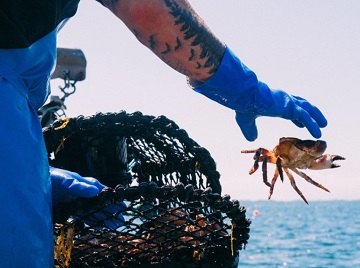
Pacific Seafood Controls the Dungeness Crab Market, but Small Fishermen Are Fighting Back
After a blockbuster 2022 crabbing season that saw an on-time, December 1 start date and record prices for fishermen, this year’s crab season didn’t kick off until mid-January after three regulatory delays. When the season did begin, crabbers were offered as little as $2 per pound for their catch, a price that left many struggling to pay staff and buy fuel and bait. Those conditions have squeezed the small businesses that make up the West Coast crabbing industry and act as the backbone for small towns up and down the shoreline. But this year appears to have brought boom times for one company in particular—Pacific Seafood. >click to read< 07:40
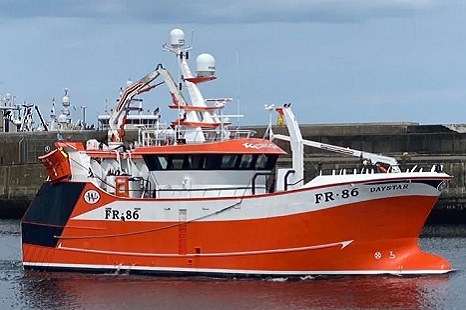
Fraserburgh’s Latest Prawn Catcher
Built by Parkol Marine Engineering, this new 25 metre LOA by 8 metre breadth Daystar is a metre longer than the trawler it replaces – which is now fishing for new owners and is still working from Fraserburgh. The Daystar name goes back to the first to carry the name, an 18.50 metre trawler built at Macduff for Stephen West and his partners. Like it predecessor, the new trawler is an SC MacAllister design, and has a striking colour scheme and some very sleek lines, thanks to the raised whaleback section and raised bulwarks along each side with the handrails only about 600mm high on top of this. This contributes to crew safety when working on top of the shelterdeck. Photos,>click to read< 17:46
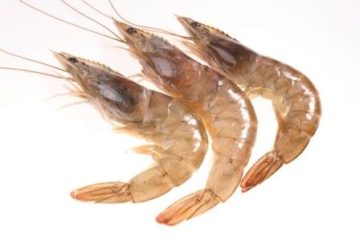
Commercial Gulf Shrimp season reopens Saturday
The Gulf of Mexico commercial shrimp season for state and federal waters will reopen 30 minutes after sunset on Saturday, July 15, 2023. “The annual mid-May closure protects brown shrimp until they can reach larger, more valuable sizes during their major period of emigration from the bays to the Gulf of Mexico,” said Robin Riechers, TPWD Coastal Fisheries Division director. Federal waters (from nine to 200 nautical miles offshore) will open at the same time as state waters. The National Marine Fisheries Service chose to adopt rules compatible with those adopted by Texas. >click to read< 16:41
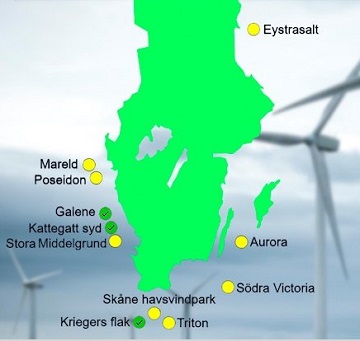
Swedish Fishermen Vow to Fight-On Against Offshore Wind Developments
The Swedish Fisherman’s Producers Organisation (SFPO) has submitted an application for judicial review to the Supreme Administrative Court regarding the government’s decision on the Kattegat Syd (South) and Galene wind farms. The action by the organisation follows on from the protests held in Lomma, Varberg and Gothenberg on 16 June last against the Swedish government’s decision to allow the construction of offshore wind turbines in the Kattegat, on valuable fishing grounds for the local Swedish fleet. The protest under the banner “No Wind Power on Our Fishing Grounds” was organised by the SFPO, the largest fishing organisation in Sweden. Since the protests, it was announced by the Uddevalla Municipality Board that there would be two large offshore wind farms (Mareid and Poseidon) constructed off Bohuslän in the municipality which would have serious consequences for fishermen there. >click to read< 14:04
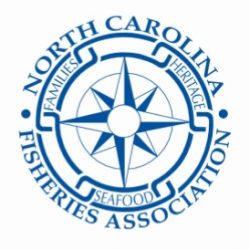
North Carolina Fisheries Association Weekly Update, July10, 2023 – Red Snapper, Plain and Simple
My last couple articles seemed to connect with many readers, some good connections and some maybe not so good. I personally received some really good feedback and I was also forwarded several emails and websites who quoted my articles. I always love seeing our newsletters getting out there for more people to read and hopefully get people more engaged in the issues. I know most of the people reading this already know, but for some of the new readers who maybe were misled by some of the people sharing our message, I feel like I needed to clarify a couple things. >click to read< 12:50
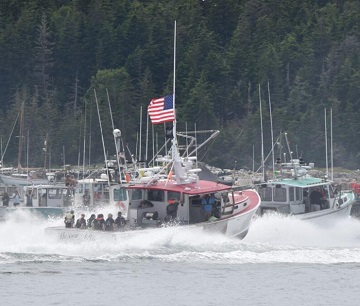
PHOTOS: Stonington Lobster Boat Races
Big engines and big wakes at the Stonington Lobster Boat Races July 9. But the fun wasn’t only on the water — the Fish Pier featured food trucks and vendors, the Odd Fellows rolled out its traditional lobster and crab roll specials (and the prices were the same as last year!) and spectators from shore found top viewing spots throughout downtown. As always, the most fun was found on the water, whether racing or tying up vessels for a watch party. 24 photos! >click to read< 11:04
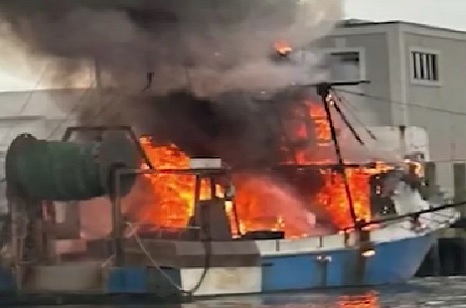
Fishing boat catches fire at Narragansett dock
Crews responded to a massive fire on a commercial fishing boat docked at the Port of Galilee Sunday night. Fire officials say they responded to the docks near State St. around 6 p.m. Saturday to find a fully involved boat fire with flames extending to the docks. “We had been working on it the last couple days, trying to get it ready for commercial fishing,” said Scott Babcock. “I don’t know if the boat is going to be fixable or not,” he continued. Babcock says the boat, the Louis Virginia, is named after his mom. He says his family has owned the boat for around 10 years. Video, photo, >click to read< 07:15
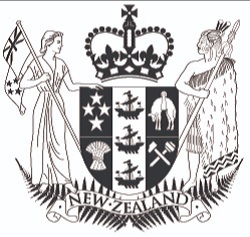
$20m deal for New Zealand seafood secured with a signed EU-NZ FTA
New Zealand seafood will gain $20 million in tariff reductions when the Free Trade Agreement (FTA) with the European Union comes into force in the first quarter of 2024. The FTA was signed in Brussels on 9 July, slightly more than one year to the date that FTA negotiations concluded. The elimination of tariffs (a tax imposed on imported products) will considerably increase the earnings from New Zealand seafood exports, “New Zealand commercial fishers are stepping up to meet the demand and maintain our global reputation for high-quality, sustainable wild-caught fish. The impact of this deal will be felt across the sector, from the many small family-run fishing businesses to the larger companies that are major employers in our regions,” Dr Helson says. >click to read< 19:26
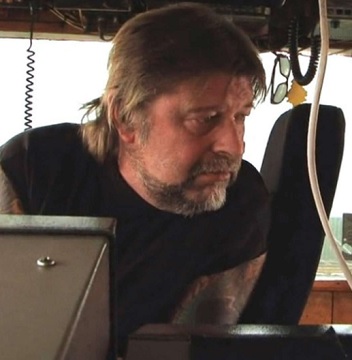
Deadliest Catch: Some Fans Believe Captain Phil’s Tragic Death Was the Show’s Turning Point
Discovery’s “Deadliest Catch” may have 19 seasons and counting under its belt, but some fans believe the show experiences a major turning point in Season 6, which aired in 2010. From the series premiere in 2005, audiences always get to know a bit about the captains and deckhands, but never anything too personal. Largely, it’s all about the dangers of the Bering Sea and filling the pots. That drastically changes in the last few episodes of Season 6, when F/V Cornelia Marie Captain Phil Harris’ emotional last days are chronicled for the world to see. After suffering a stroke off-camera, Harris awakens from a medically induced coma. As shown on “Deadliest Catch,” he’s able to spend some time with his sons — Jake and Josh Harris — before passing away on February 9, 2010. >click to read< 17:21
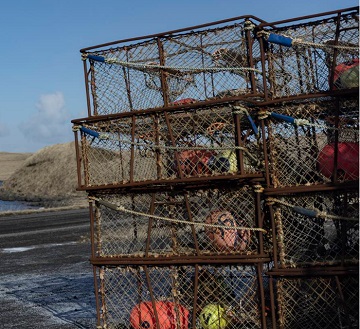
The snow crab vanishes
My small turboprop plane whirred low through thick clouds. Below me, St. Paul Island cut a golden, angular shape in the shadow-dark Bering Sea. I saw a lone island village — a grid of houses, a small harbor, and a road that followed a black ribbon of coast. Some 330 people, most of them Indigenous, live in the village of St. Paul, about 800 miles west of Anchorage, where the local economy depends almost entirely on the commercial snow crab business. Over the last few years, 10 billion snow crabs have unexpectedly vanished from the Bering Sea. I was traveling there to find out what the villagers might do next. Photos, >click to read< 15:54
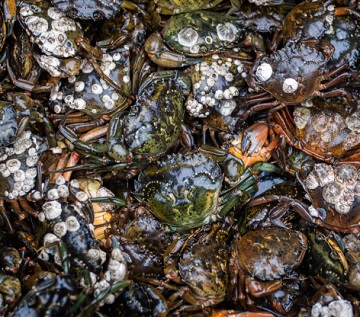
Crab ice cream, anyone? How we might be able to eat our way out of an invasive green crab problem
They’re tiny and they’re wreaking havoc on our coasts, but they also taste pretty good. European green crabs have posed a problem off the coast of Vancouver Island for decades now, and while current conservation efforts have focused on deep freezing them and throwing them in a landfill, some suggest eating them instead. The species, which is found across the Pacific Northwest is aggressive and feeds voraciously on shellfish; they have no natural predators, and they reproduce at a high rate. Each female can have up to 185,000 babies at a time. It’s not just a West Coast problem. Fisheries and Oceans Canada notes that the species, which originally came from Europe and North Africa and likely hitched a ride to North America on wooden ships in the early 19th century, first invaded east coast waters in the 1950s. >click to read< 09:50
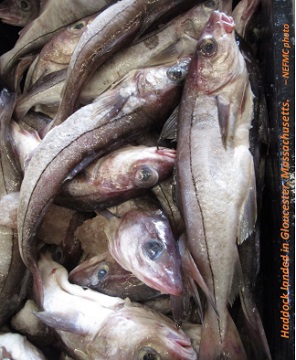
Haddock quotas for fishermen have been drastically cut. What does that mean for haddock eaters?
There is a haddock problem swimming around Gulf of Maine waters. But don’t blame the problem on fishermen catching too many haddock, say Maine commercial fishing advocates like Ben Martens, executive director of the Maine Coast Fishermen’s Association. In fact, they have been fishing in accordance with mandated quotas for decades, he said, regulatory measures that have returned the haddock stocks in the Gulf of Maine to sustainable levels. The problem, rather, is grounded in inaccurate accounting of the boom-and-bust cycles of haddock biomass, that is, how many fish are swimming in the Gulf of Maine at any given time. In April, the New England Fishery Management Council, a regional body that uses industry and scientific data to recommend quotas that restrict how many metric tons of regulated species Maine fishermen can haul in each year, announced a cut in haddock quotas. It represents an 80 percent reduction in allowable catch; the new season began on May 1. >click to read< 08:50
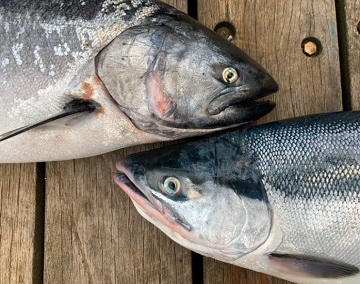
Why are chinook runs declining in Bristol Bay, while sockeye runs are shattering records?
Tim Sands is the westside area management biologist with the Alaska Department for Fish and Game, where this issue is top of mind. “That’s one of the questions we get: ‘Well, are the sockeye up there competing with the kings? Is that what’s going on?’” Sands said. “I don’t think so. The sockeye for the most part are bearing in the lake. Kings are in the river. They spawn in different areas.” Sands says sockeye and chinook lay and bury their eggs in different spawning grounds and at different depths. So most likely the issue is tied to ocean conditions when kings migrate out to sea. But what’s exactly behind this decline remains a mystery. “There’s something else going on,” Sands said. >click to read< 13:45
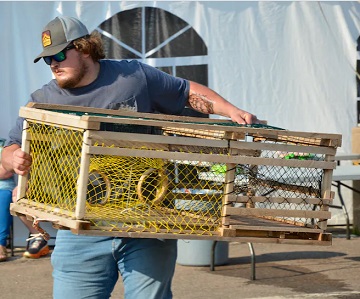
P.E.I. fishermen compete for $1,000 in lobster trap stacking competition in Summerside
Sweat dripped down Ryan Murphy’s face as he caught his breath after winning the Journal Pioneer Lobster Trap Stacking Competition in Summerside on July 6. “The last one, I couldn’t feel my legs there. They were a little bit rubbery,” said Murphy, laughing. Altogether, only four of P.E.I.’s toughest lobster fishermen tested their strength and competed for a grand prize of $1,000. The competition has been part of the Summerside Lobster Carnival at Credit Union Place for a number of years. The fisherman had to move eight lobster traps about nine metres across the fairgrounds on a sweltering summer evening. >click to read< 11:12
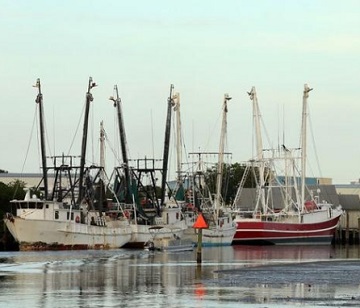
Data shows Florida seafood landings rank below historic trends, Hurricane losses, high diesel prices likely to blame
Since the COVID-19 pandemic, hurricanes and increased fuel costs have reduced the catch of Florida’s seafood industry. Florida’s Gulf Coast is the largest fishery for the state and is still dealing with the effects of Hurricane Ian in late 2022. The storm made landfall at Fort Myers and devastated Florida’s shrimping industry, sinking boats and destroying infrastructure crucial to the industry. According to preliminary data compiled by The Southern Shrimp Alliance from the National Oceanic and Atmospheric Administration’s Fishery Monitoring Branch, Florida’s March 2023 landings off the West Coast were 72.7% below the historical average. In total, 2023 landings for the West Coast are 42.1% below historical trends. >click to read< 10:06
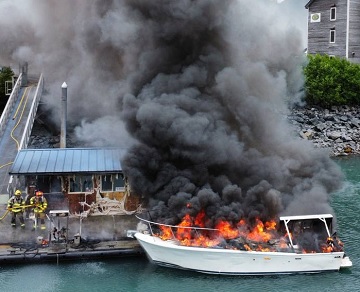
Whittier officials say fuel dock operational after closing due to 4th of July fire
The fire started on Tuesday, sinking a boat and forcing two people to be medevaced out with injuries. It also resulted in the closure of the dock, the only refueling station for many vessels. It also occurred right before a 36-hour commercial fishing opening in the Prince William Sound on Wednesday. Whittier Harbormaster David Borg says time was of the essence to get the dock ready for fueling. “We knew we had about a 30-hour window to get fuel back down to the dock, just based on the fact that when that 36-hour opener shut down, we would have the fleet coming back to Whittier to offload,” Borg said. “And they take that opportunity to refuel, resupply with food and so forth.” >click to read< 09:22
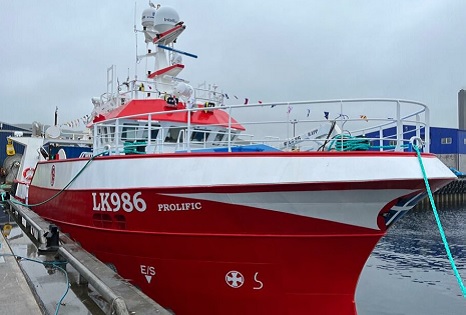
60 North Fishing director welcomes arrival of new Prolific
The new 25-metre Prolific arrived in Lerwick late last night (Thursday), much to owner Mark Anderson’s relief. She is the sister ship of the new Copious LK985, which arrived in the isles at the end of January. Both vessels belong to 60 North Fishing (Shetland) and replace two of the company’s previous vessels with the same names. “Both of the boats were nine months late, each of them, in being delivered,” Anderson said. “We sold the previous boats, first one in April last year and the second one in the end of June… so it’s been a long time coming.” Photos, >click to read< 08:39






